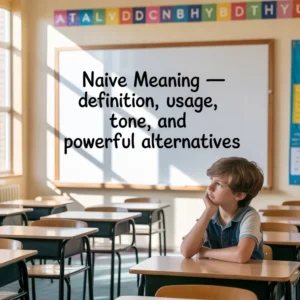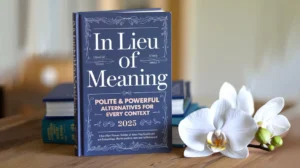In today’s emotionally charged digital landscape, “love bombing” has become one of the most talked-about psychological behaviors in relationships—both romantic and otherwise. The term has evolved dramatically since its early use in the 1970s and is now deeply embedded in discussions around manipulation, trauma bonding, and narcissistic abuse.
This article explores the true meaning of love bombing in 2025, going beyond surface-level definitions to offer a comprehensive look at its implications, signs, causes, psychological underpinnings, and professional strategies for recognition and response.
What Is Love Bombing?
Love bombing is an intense form of affection, attention, and admiration used by someone—intentionally or unintentionally—to gain control or influence over another person. It often includes excessive compliments, rapid promises of commitment, constant communication, and lavish displays of affection, particularly in the early stages of a relationship.

Why the Term Matters More in 2025
In 2025, with AI-driven dating, VR relationships, and emotionally immersive platforms booming, recognizing love bombing has become even more critical. What used to be confined to in-person relationships is now digitally amplified, making manipulation harder to detect and more psychologically damaging.
Signs of Love Bombing: Red Flags to Watch Out For

1. Over-the-Top Compliments
Within days, the person might say things like, “You’re my soulmate,” or “I’ve never felt like this before.”
2. Rushing the Relationship
They may insist on moving in together, getting engaged, or even having children in record time.
3. Constant Communication
They flood your phone with texts, calls, DMs, or emails—even when you’re busy.
4. Lavish Gifts or Grand Gestures
You’re showered with expensive items, plane tickets, or surprise visits.
5. Disregard for Boundaries
Even if you ask for space or slower pace, they dismiss it as a joke or ignore it completely.
Why People Engage in Love Bombing

1. Narcissistic Traits
Individuals high in narcissism often use love bombing to create dependency and then shift into controlling or devaluing behavior.
2. Attachment Disorders
People with anxious or avoidant attachment styles might love bomb out of fear of abandonment.
3. Insecurity and Validation Needs
Some use it to boost self-worth by securing another person’s emotional investment quickly.
4. Unconscious Behavior
Not all love bombers are manipulators. Some genuinely believe they are just being romantic.
Love Bombing vs. Healthy Affection: Key Differences
| Feature | Love Bombing | Healthy Affection |
|---|---|---|
| Pace of Relationship | Rapid, overwhelming | Natural, mutual pace |
| Intention | Control or dependence | Connection and understanding |
| Response to Boundaries | Ignores or ridicules boundaries | Respects and adjusts accordingly |
| Emotional Reactions | Extreme highs and lows | Stable and respectful |
Impact of Love Bombing on Victims
Psychological Aftermath can be long-lasting:
- Confusion and cognitive dissonance
- Lowered self-esteem
- Emotional dependency
- Post-traumatic stress symptoms
How to Respond If You Suspect Love Bombing
- Pause and Reflect
- Take emotional inventory. Are you feeling overwhelmed or rushed?
- Communicate Boundaries Clearly
- Express needs for space, time, or slower commitment.
- Watch for Pattern Reversals
- If the adoration turns to neglect or criticism, it’s a strong sign.
- Seek External Validation
- Talk to friends, therapists, or support communities.
- Trust Your Gut
- Your instincts often recognize coercion before your mind rationalizes it.
Alternatives to “Love Bombing” in Language and Relationships
Sometimes, people just want to express deep emotions early on. Here’s how to convey intensity without being manipulative:
Polite & Balanced Alternatives:
- “I really enjoy spending time with you and getting to know you better.”
- “You’ve made a big impact on my life in such a short time—thank you.”
- “I’m excited to see where this goes, without rushing anything.”
- “You’re someone I feel deeply connected to, and I respect your pace.”
- “Let’s explore this connection with mutual care and honesty.”
Casual Yet Thoughtful Expressions:
- “You’re awesome—can’t wait to learn more about you!”
- “This is fun. I’m glad we met.”
- “You’ve got great energy—I like being around you.”
- “This feels easy, and I think that’s rare. Let’s enjoy it.”
- “We’re vibing well—let’s keep this organic.”
Each of these expressions respects boundaries, avoids manipulation, and allows the other person space to engage authentically.
Love Bombing in 2025: Digital Manifestations
With VR dating rooms, AI-enhanced avatars, and emotionally immersive technologies, love bombing has adapted. Some examples include:
- Over-customized avatars with instant “soulmate” traits
- AI-generated poetry, love letters, and digital gifts every hour
- Real-time surveillance under the guise of “care”
- Love bombing bots used in virtual reality or dating apps to manipulate emotionally vulnerable users
Tech Red Flags to Recognize:
- Chat partner seems too perfect and over-committed
- Emotionally charged conversations escalate too quickly
- Love messages appear generated or oddly repetitive
Prevention and Awareness: Education is Key
- Teach digital literacy: Recognize behavioral patterns in online relationships.
- Promote emotional intelligence: Empathy, pacing, and self-awareness can curb both giving and receiving unhealthy affection.
- Encourage healthy boundaries: Normalize saying no and pausing affection.
Final Thoughts: Moving Toward Real, Respectful Love
Love bombing is not love. It’s intensity masquerading as connection.
In a world increasingly shaped by artificial interactions and hyper-speed dating culture, developing emotional discernment is no longer optional. Learn to recognize signs, understand your needs, and advocate for a relationship that’s balanced, respectful, and real.
If you feel overwhelmed by affection that doesn’t feel safe, you’re not overreacting—you’re noticing something important.
Love should feel grounding, not overwhelming.





